|
|
|
|
|
|
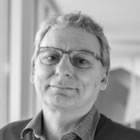 |
| INVITED |
|
 |
| . |
|
|
Pedro Alpuim
INL, Portugal
Invited – Plenary Session
Pedro Alpuim is group leader in 2D Materials and Devices at INL. He works in CVD and 2D materials device fabrication. In particular, he develops graphene devices to detect biomarkers for medicine and for environmental monitoring, and transition-metal di-chalcogenides optoelectronic devices.
P. Alpuim is a professor in the Physics Department of the University of Minho. He received a PhD degree in Materials Engineering from IST Lisbon in 2003, working in amorphous silicon devices for flexible electronics. He installed a thin-film laboratory at UM focusing on the fabrication of thin-film solar cells, piezoresistive sensor arrays, and thermoelectric junctions of telluride compounds for micro-cooling and energy scavenging. He published more than 80 papers in peer-reviewed journals and has h-index=24.
|
|
|
|
|
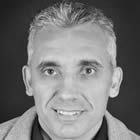 |
| KEYNOTE |
|
 |
| . |
|
|
Francesco Bonaccorso
BeDimensional, Italy
Keynote – Plenary Session
Francesco Bonaccorso is the Scientific Director of BeDimensional SpA and Visiting Scientist at the Istituto Italiano di Tecnologia. He gained the PhD from the University of Messina after working at the Italian National Research Council, the University of Cambridge and the University of Vanderbilt. In 2009 he was awarded a Royal Society Newton International Fellowship at Cambridge University, and a Fellowship at Hughes Hall, Cambridge, obtaining a MA. He was responsible in defining the ten years scientific and technological roadmap for the Graphene Flagship. He is now Deputy of the Innovation of the Flagship. He was featured as 2016 Emerging Investigator by J.Mater.Chem.A and in 2019 by ChemPlusChem. His research interests encompass both the fundamental understanding and solution processing of novel nanomaterials and their technological applications. He authored/co-authored more than 120 publications and 12 patents.
|
|
|
|
|
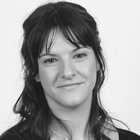 |
| KEYNOTE |
|
 |
| . |
|
|
Cinzia Casiraghi
University of Manchester, UK
Keynote – Plenary Session
Prof Casiraghi holds a Chair in Nanoscience at the Department of Chemistry, University of Manchester (UK). She received her B.Sc. and M.Sc. in Nuclear Engineering from Politecnico di Milano (Italy) and her Ph.D. in Electrical Engineering from the University of Cambridge (UK). In 2005, she was awarded with an Oppenheimer Early Career Research Fellowship, followed by the Humboldt Research Fellowship and the prestigious Kovalevskaja Award (1.5M Euro). In 2010 she joined the department of chemistry at the University of Manchester. Her current research work focus on the development of biocompatible 2D inks and their use in printed electronics and biomedical applications. She has published more than 100 works in well-respected journals in the field, by collecting more than 30,000 citations and a h-factor of 50. She has been chair/co-chair and member of conference committees of several prestigious conferences, such as MRS, MRS, Graphene Week, Graphene conference, etc. She also serves as editorial board member of Nanoscale and Nanoscale Advances, both published by the Royal Society of Chemistry (RSC). She is a leading expert on Raman spectroscopy, used to characterize a wide range of carbon-based nanomaterials, as shown by the RSC Marlow Award (2014), given in recognition of her pioneering work on Raman spectroscopy. She is recipient of the Leverhulme Award in Engineering (2016, 100K GBP), and the recent RSC 2020 Gibson-Fawcett Award, in recognition of her contribution in the development of water-based 2D inks. She was also awarded an ERC Consolidator grant (2015, 2M Euro) and ERC Proof of Concept (2020, 150K Euro).
|
|
|
|
|
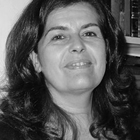 |
| INVITED |
|
 |
| . |
|
|
Fernanda Cassio
University of Minho, Portugal
Invited – Plenary Session
Fernanda Cássio is a Full Professor at the Department of Biology of the University of Minho, Portugal. She holds a PhD in Sciences, specialization in Microbiology. She is the director of the research Centre in Molecular and Environmental Biology from the UMinho. She published more than100 SCI papers and book chapters. Her research topics are: Biodiversity and freshwater ecosystem functioning; Aquatic pollution from eutrophication, metals, PAHs and nanoparticles; Eco-physiology of aquatic fungi; Metals and nanoparticles/microbe interactions; Molecular tools to assess microbial diversity and function in freshwaters. She supervised 16 (9 concluded) PhD theses and 25 (23 concluded) Master theses. She participated in 24 research projects, of which she was the Principal Investigator of 12.
|
|
|
|
|
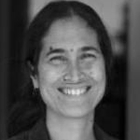 |
| KEYNOTE |
|
 |
| . |
|
|
Liraz Chai
The Hebrew University of Jerusalem, Israel
Keynote – Plenary Session
Dr. Liraz Chai is an assistant professor at the School of Chemistry in the Hebrew University of Jerusalem. She holds a bachelor’s degree in Chemistry, and she completed both her master’s and PhD degrees in Chemistry at the Weizmann Institute of Science. Her PhD focused on the intermolecular interactions between polymers- and charge- bearing surfaces. For her postdoctoral studies she switched gears into the field of microbiology at Harvard University. Her current research combines her training in Soft Matter and Microbiology together with the study of bacterial biofilms. She is interested in the properties and assembly of extracellular matrix biopolymers in bacterial biofilms as well as in biomineralization phenomena associated with bacterial biofilms.
|
|
|
|
|
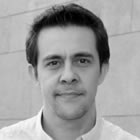 |
| KEYNOTE |
|
 |
| . |
|
|
Artur Ciesielski
Université de Strasbourg, France
Keynote – Plenary Session
Artur Ciesielski obtained his M.Sc. degree from Adam Mickiewicz University, followed by his PhD degree from the University of Strasbourg (P. Samorì). In 2016, he became a research associate at the Institut de Science et d'Ingénierie Supramoléculaires (ISIS) and Centre National de la Recherche Scientifique (CNRS). In 2018 he has been appointed as visiting professor at the Centre for Advanced Technologies of Adam Mickiewicz University in Poznań (Poland). His research interests include the design of supramolecular systems, self-assembly of nanopatterns, and production and chemical modification of 2D materials by exploiting supramolecular approaches and their exportation in (nano)devices including sensing and energy storage/conversion. He has been awarded twice with the prestigious ‘Outstanding Pole in France award’ in science (2015 and 2019). He has recently become a member of the Young Academy of Europe (YAE).
|
|
|
|
|
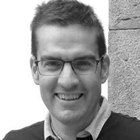 |
| KEYNOTE |
|
 |
| . |
|
|
Joaquín Fernández-Rossier
INL, Portugal
Keynote – Plenary Session
Joaquín Fernández-Rossier is currently the leader of the Group of Theory of Quantum Nanostructures. He holds both a Diploma (1994) and a PhD (1999) on Physics from the Universidad Autónoma de Madrid. He spent 2 years (99-01) as a postdoctoral researcher at the Physics Department of the University of California San Diego and 18 months (01-03) at the Physics Department of the University of Texas at Austin. In 2003 he obtained a Ramon y Cajal assistant professor position in the Universidad de Alicante, and he was promoted to a permanent position in 2008 and to an associate professor (professor titular) in 2009. He is a condensed matter theorist with interest in quantum phenomena at the atomic scale, quantum materials and quantum technologies. He has published more than 125 indexed research papers, including Science (2), Nature (1), Nature Materials (2), Nature Nanotechnology (3), Nano Letters (2), 2D Materials (3), Phys. Rev. X (1), Phys. Rev. Lett. (19) , Phys. Rev. B(52), cited more than 4000 times (h=34, WOS). He has graduated 4 PhD students.
|
|
|
|
|
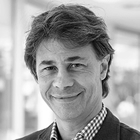 |
| KEYNOTE |
|
 |
| . |
|
|
Paulo J. Ferreira
INL, Portugal
Keynote – Plenary Session
Paulo Ferreira is currently the Head of the Advanced Electron Microscopy, Imaging and Spectroscopy Center and the Leader of the Atomic Structure-Composition of Materials Group at the International Iberian Nanotechnology Laboratory (INL), Portugal. He is also a Full Professor in the Department of Mechanical Engineering at IST, University of Lisbon, Portugal and an Adjunct Professor, Robert & Jane Mitchell Endowed Faculty Fellowship in Engineering in the Materials Science and Engineering Program at the University of Texas at Austin, USA. Before joining INL and IST in Portugal, he was Robert & Jane Mitchell Endowed Faculty in Engineering and Full Professor at the University of Texas at Austin, USA and the Director of Electron Microscopy at the Texas Materials Institute at the University of Texas at Austin. He has a Ph.D in Materials Science and Engineering from the University of Illinois, USA and has done his Post-doctoral work at MIT in Materials Science and Engineering. He concentrates his scientific research in the areas of Materials Science, Nanomaterials and Electron Microscopy applied to alternative energy materials and 2D materials. At the educational level, he teaches graduate courses in Nanomaterials and Nanotechnology, Structure of Materials and Electron Microscopy. In parallel, he has been involved in initiatives with various American and Portuguese institutions in the areas of Education and Higher Education, Systems of Innovation, and Science and Technology. He is co-author of three books, namely “Materials 2000”, IST Press, 2003, “Investing in the Future: University-Industry Collaborations in USA and Portugal”; and “Nanotechnology for Architects, Designers and Engineers” with co-authors D. Schodek (Harvard University) and Michael Ashby (University of Cambridge, UK). He is also the author of 205 scientific articles published in international journals, conference proceedings and book chapters. Prof. Ferreira has also acted as a special advisor to the Minister of Economics and Innovation, Portugal, on Government Strategy for Science & Technology, and he is part of the Selection Nomination Committee of the Japan Prize. He is also the Vice-President of the Portuguese Society for Microscopy.
|
|
|
|
|
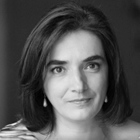 |
| KEYNOTE |
|
 |
| . |
|
|
Elvira Fortunato
Universidade Nova de Lisboa, Portugal
Keynote – Plenary Session
Elvira Fortunato is Vice‐Rector at Nova University since September 2017, Director of the Materials Research Center (CENIMAT) and the integrated Associate Laboratory i3N, the Institute of Nanostructures, Nanomodeling and Nanofabrication (The only Portuguese research centre (1998-…) classified as Exceptional in the Advanced Materials and Nanotechnologies area in the last national evaluation); Invited Professor at Universidade Federal de Lavras, Brazil (2013-…).
She has held other Institutional Responsibilities, such as, Deputy Director of FCT NOVA (2014-17); Coordinator of Research Centers of FCT NOVA (2006-17); Member of the Executive Board of the Materials Science Department (2009-17); Coordinator of the Doctoral Programme in Nanosciences and Nanotechnology, FCT NOVA (2009-18); Member of the Scientific Committee of the PhD Program in Biomaterials (UFLA, Brasil) (2014-…). Participation in several academic examination referees board (PhD juries in and abroad Portugal).
|
|
|
|
|
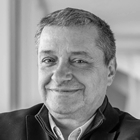 |
| KEYNOTE |
|
 |
| . |
|
|
Paulo Freitas
INL, Portugal
Keynote – Plenary Session
Paulo Freitas has a Bsc in Physics from the University of Porto and a PhD in Physics from the Carnegie Mellon University (1986). After his PhD at the Carnegie Mellon University, he was a postdoctoral Research Fellow at the IBM Watson Research Center, Yorktown Heights, New York, USA (1986-87). From 1990 to 2000, he was Director of the Solid State Technology Group at INESC and since 2000, Director of INESC-MN. Professor Freitas has been a full professor of Physics at the Instituto Superior Técnico since 2003, administering the Department of Physics since 2006. In 2007, he joined the Installation Commission of the International Iberian Nanotechnology Institute (INL) and was appointed Deputy Director General in 2009.
|
|
|
|
|
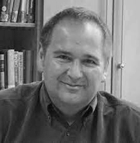 |
| KEYNOTE |
|
 |
| . |
|
|
Thomas Heine
TU Dresden, Germany
Keynote – Plenary Session
Thomas Heine is Full Professor of Theoretical Chemistry at TU Dresden. He graduated in 1999 at TU Dresden (PhD in physics), with extensive research stays at University of Montreal and University of Exeter. After postdoctoral stages at University of Bologna and University of Geneva he obtained his venia legendi in Physical Chemistry at TU Dresden in 2006. In 2008 he started his research group as Associate Professor at Jacobs University Bremen, where he was promoted to Full Professor in 2011. After being the Chair of Theoretical Chemistry at Leipzig University from 2015-2018 he moved to his current position at TU Dresden. His research interest is located at the interface of chemistry and physics and focuses on the computational science of nanostructured materials, in particular of two-dimensional crystals and molecular framework materials. Prof. Heine is a highly cited author with more than 300 peer-reviewed articles, an h-index of 77 (ISI) / 87 (Google Scholar). He gave more than 100 invited talks at international workshops and conferences.
|
|
|
|
|
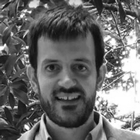 |
| INVITED |
|
 |
| . |
|
|
Josep Ingla Aynés
CIC NanoGUNE, Spain
Invited – Plenary Session
Dr. J. Ingla-Aynés received his bachelor’s in physics (2012) and master's in nanotechnology (2013) at the University of Barcelona. From 2014 to 2018 he performed his Ph.D. in the group of Prof. B. J. van Wees at the University of Groningen (RUG). In 2018, he received his Ph.D. and joined CIC nanoGUNE (San Sebastian) as a postdoctoral researcher. During his postdoc, he has been awarded a competitive Juan de la Cierva fellowship from the Spanish government. His research focuses on spin-to-charge conversion and spin transport phenomena in graphene-based van der Waals heterostructures.
|
|
|
|
|
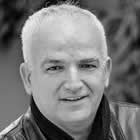 |
| KEYNOTE |
|
 |
| . |
|
|
Arben Merkoci
ICREA/ICN2, Spain
Keynote – Plenary Session
Arben Merkoçi is currently ICREA Professor and director of the Nanobioelectronics & Biosensors Group at Institut Català de Nanociencia i Nanotecnologia (ICN2), part of Barcelona Institute of Science and Technology (BIST). After his PhD (1991) at Tirana University (Albania), in the topic of Ion-Selective-Electrodes (ISEs) Dr. Merkoçi worked as postdoc and senior researcher/invited professor in the field of nanobiosensors and lab-on-a-chip technologies in Italy, Spain, USA and since 2006 at ICN2. Prof. Merkoçi research is focused on the design and application of cutting edge nanotechnology and nanoscience based cost/efficient biosensors. The paper/plastic-based nanobiosensors involve integration of biological molecules (DNA, antibodies, cells and enzymes) and other (bio)receptors with micro- and nanostructures/motors and applied in diagnostics, environmental monitoring or safety and security. He has published around 310 peer review research papers (H index: 67 WOS; 82 GS), supervised 30 PhD students and has been invited to give plenary lectures and keynote speeches in around 200 occasions in various countries. Prof. Merkoçi is Co-Editor In Chief of Biosensors and Bioelectronics and member of Editorial Board of other journals. He is co-founder of two spin-off companies, PaperDrop dedicated to nanodiagnostics and GraphenicaLab to electronic printing. See more details on his group and CV at:
https://icn2.cat/en/nanobioelectronics-and-biosensors-group
https://www.icrea.cat/security/files/researchers/files-maintenance/full_cv_amerkoci_0.pdf |
|
|
|
|
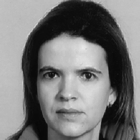 |
| INVITED |
|
 |
| . |
|
|
Graça Minas
Universidade do Minho, Portugal
Invited – Plenary Session
Graça Maria Henriques Minas is an Associate Professor at the Department of Electronics Engineering and a researcher at the Center for MicroElectroMechanical Systems (CMEMS-UMinho), both at University of Minho (UMinho), Portugal. She is the director of the Department of Electronics Engineering (2021 - …). She received a Dipl. Eng. in Industrial Electronics Engineering in 1994, a MSc-Eng in 1998, and a PhD in Electronics Engineering in 2004 from UMinho, in the field of Lab-on-a-chip devices, working in cooperation with the Laboratory for Electronic Instrumentation, Delft University of Technology, The Netherlands. Her main research is mostly centered in the area of biomedical microdevices, specifically in Lab-on-a-chip integration of electronic circuits, optical filters, solid-state integrated sensors, biosensors and actuators in those LOC devices, and, more recently, in organ-on-a-chip.
|
|
|
|
|
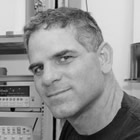 |
| KEYNOTE |
|
 |
| . |
|
|
Danny Porath
The Hebrew University of Jerusalem, Israel
Keynote – Plenary Session
Prof. Danny Porath Studied for BSc in Physics, Mathematics and Electronics at the Hebrew University. Received his Ph.D in Physics from the Hebrew University in 1997. Did his postdoc at Delft University of Technology with Prof. Cees Dekker and established his group at the Institute of Chemistry of The Hebrew University of Jerusalem in 2001. The group research interests include: DNA-Based Nanoelectronics, scanning probe microscopy and spectroscopy of single molecules, electrical transport measurements in single molecules, nanoelectronics, DNA sequencing and biomarker detection. Member of the Editorial Board of “Self Assembly and Molecular Electronics and of “Scientific Report” from Nature Publishing Group. Received excellent postdoctoral award of the American Vacuum Society Meeting, Boston 2000, and The Israel Chemical Society Prize for the Outstanding Young Scientist in 2007. Holds the Etta and Paul Schankerman Chair of Molecular Biomedicine since 2014. Served as the Director of the Hebrew University Center for Nanoscience and Nanotechnology 2011-2014. Currently serves and the Vice Dean Research of the Faculty of Science.
|
|
|
|
|
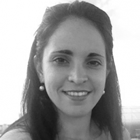 |
| INVITED |
|
 |
| . |
|
|
Catarina P. Reis
University of Lisbon, Portugal
Invited – Plenary Session
PhD (2008) in Pharmacy (Pharmaceutical Technology), Universidade de Coimbra. Assistant Professor, Galenic Pharmacy and Pharmaceutical Technology, Faculdade de Farmácia, Universidade de Lisboa
|
|
|
|
|
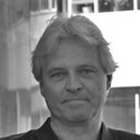 |
| KEYNOTE |
|
 |
| . |
|
|
Bernhard Roling
University of Marburg, Germany
Keynote – Plenary Session
University Education
1986-1991 Diploma studies in Chemistry, University of Münster
Scientific Degrees
2009 Habilitation in Physical Chemistry, University of Münster Mentor: Prof. Dr. Klaus Funke
1995 Ph.D. in Physical Chemistry, University of Münster
|
|
|
|
|
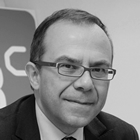 |
| KEYNOTE |
|
 |
| . |
|
|
Josep Samitier Martí
IBEC, Spain
Keynote – Plenary Session
Prof. Josep Samitier is Director of IBEC and Full Professor in the Physics Faculty (Electronic Dep.), University of Barcelona. From February 1984 to June 1985 he was visiting research fellow at the Philips Electronic Laboratory, Paris, France. From March 2001 to June 2005 Prof. Samitier was Deputy Head of the Barcelona Science Park (PCB), and in 2003 he received the Barcelona city Prize of the Barcelona Council in the area of technology. Prof. Samitier is the coordinator of the Spanish Platform on Nanomedicine and the president of the Associació Catalana dEntitats de Recerca (ACER).
|
|
|
|
|
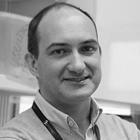 |
| KEYNOTE |
|
 |
| . |
|
|
Bruno Sarmento
i3S / University of Porto, Portugal
Keynote – Plenary Session
Bruno Sarmento is Principal Investigator, Group Leader and member of the Board of Directors at Institute for Research and Innovation in Health (i3S), University of Porto (UP), and Invited Associate Professor at Instituto Universitário de Ciências da Saúde (IUCS), Portugal. He graduated in Pharmaceutical Sciences at the University of Porto (PT) in 2002 and completed a PhD in Pharmaceutical Nanotechnology at UP in 2007, in collaboration with Queen’s University (CA), University of Copenhagen (DK) and University of Santiago de Compostela (ES). From 2007 to 2012 he held a Post-Doc position at UP, in collaboration with the University of Copenhagen. In 2008 he was appointed Assistant Professor at IUCS. He also co-founded Inovapotek in 2008, and is member of its advisory board. In 2012 he became Associated Researcher at INEB, where established an independent team. He was appointed as Assistant Researched at INEB/i3S in 2016, and Principal Investigator in 2019. He was Visiting Professor ay, UniOeste (BR) and Visiting Research Professor at Queen’s University, Belfast (UK).
|
|
|
|
|
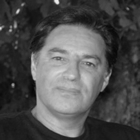 |
| KEYNOTE |
|
 |
| . |
|
|
Tito Trindade
University of Aveiro, Portugal
Keynote – Plenary Session
Tito Trindade is Professor in the Chemistry Department of the University of Aveiro (Portugal) and member of the Laboratory Centre for Research in Ceramics and Composite Materials (CICECO) where he has coordinated, until 2016, the Research Line 1: “Nano- and Micro-Structured Materials for Information and Communication Technology”.Tito Trindade has been appointed for several working groups and positions related to the implementation of Nanotechnology activities which include National Contact Point for the FP6 program, delegate of COST Action D19 (2000-2006) and Director of the Doctoral Program in Nanosciences and Nanotechnology of the University of Aveiro. He was appointed to academic management duties such as Head of Department Deputy (1997-1999) and Scientific Coordinator (2007-2009) of the Department of Chemistry of the University of Aveiro. He was elected President of the Inorganic Chemistry Division of the Portuguese Chemical Society for the period 2007-2009. He was the Director of the Department of Chemistry at U. Aveiro in 2015-2019. He has been appointed member of research assessment panels for FCT grants and was also invited to evaluate international projects. He has been strongly committed to diverse pedagogical activities namely by lecturing diverse undergraduate and postgraduate courses including Nanochemistry, Inorganic Chemistry, Materials Chemistry, Inorganic Pigments, Physical-Chemistry Foundations, and General Chemistry.
|
|
|
|
|
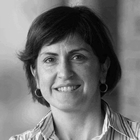 |
| KEYNOTE |
|
 |
| . |
|
|
Roser Valenti
University of Frankfurt, Germany
Keynote – Plenary Session
Roser Valenti is full professor of theoretical physics at the Goethe University Frankfurt. She received her Ph.D. degree in theoretical physics at the University of Barcelona. Before joining Frankfurt, she was postdoctoral Fulbright fellow at the University of Florida at Gainesville, Habilitation researcher at the University of Dortmund and Heisenberg fellow at the University of Saarland, Germany. From 2009 to 2012 she was vice-president of the Goethe University Frankfurt. She is a Fellow of the American Physical Society and an Advisor of the CIFAR Quantum Materials Program as well as of a few international Scientific Institutions. Her field of research is computational solid-state physics, with a focus on the microscopic modelling of correlated electrons in materials such as unconventional superconductors, frustrated magnets and systems with topologically non-trivial states, via a combination of first-principles-based methods and many-body numerical techniques.
|
|
|
|
|
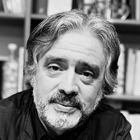 |
| KEYNOTE |
|
 |
| . |
|
|
Luis Miguel Varela
Universidad de Santiago de Compostela, Spain
Keynote – Plenary Session
Luis Miguel Varela (Lugo, 1972) graduated in Physics at the University of Santiago in 1995 and in Law at the Open University (UNED) in 2000. He got his PhD in Physics (with Honors) from the University of Santiago de Compostela, where he is currently full professor in its department of Particle Physics (Condensed Matter division). His teaching has focused on thermodynamics, statistical mechanics, and statistical data analysis, as well as on Econophysics and Renewable Energies. His research interests focus on statistical mechanics of complex systems, especially charged complex fluids, and more specifically in ionic liquids, and in complex networks and their applications to epidemics, socioeconomic systems, interregional development, etc. Specifically, he is working on the properties of ionic fluids and ionogels as advanced electrolytes for electrochemical and electrical energy storage (batteries, supercapacitors, fuel cells) and photonic devices. He has also made contributions in the field of thermal energy storage and thermal fluids. He is author or coauthor of over 125 articles (h=34), chapters and monographs in these fields, and has supervised several degree, master and doctoral theses (8), and coordinated regional, national and European projects and research contracts with industries and with the Administration. Currently, he has active research and teaching collaborations with researchers from different universities, among which are Cambridge, Oxford, Pierre et Marie Curie-Sorbonne, Vienna, Milano, and Naples. He has been the Dean of the Faculty of Physics since 2010 to 2018, and coordinated Master programs in Physics and Renewable Energies, as well as a Doctoral program in Renewable Energies and Sustainability. He has coordinated the Galician network on Ionic Liquids and is the president of the European Society of Ionic Matter, and currently coordinates the Nanomaterials, Photonics and Soft Matter Group at USC. He is a current member of the main European platforms on batteries (Batteries Europe, Battery 2030+) and has advised the regional Government of Galicia on the structure and perspectives of the energy storage sector
|
|
|
|
|
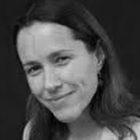 |
| KEYNOTE |
|
 |
| . |
|
|
María Varela del Arco
UCM, Spain
Keynote – Plenary Session
Maria Varela is a Full Professor at the School of Physics at the Universidad Complutense de Madrid (UCM), Spain. Before joining UCM, she was a Distinguished Research Staff Member at the Materials Science & Technology Division at Oak Ridge National Laboratory, USA, where she arrived as a Wigner Fellow in 2002. In 2009 she was awarded a Visiting Professor position at UCM, which turned into an Associate Professor in 2011 and Full Professor in 2017. She have published >200 research articles and given over 150 invited presentations and seminars at international conferences and research institutions worldwide. She has also been very successful in securing funding for her research programs with over $7M coming from the US DOE, having also received several ERC awards for €2M. She have supervised many researchers: > 20 graduate & master students and postdoctoral researchers who have gone on to leading faculty positions in Europe, Asia or the US.
|
|
|
|
|
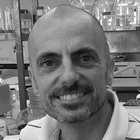 |
| KEYNOTE |
|
 |
| . |
|
|
Pedro Viana Baptista
Nova University Lisbon, Portugal
Keynote – Plenary Session
Pedro Viana Baptista is Full Professor at FCT/UNL, Universidade Nova de Lisboa (Portugal), where he coordinates the Nanomedicine Group focusing on gold nanoparticles for tackling the tumor process – targeted delivery of drugs, RNAi moieties and probes, peptides and as trigger of photothermal induction in the visible. He has been recipient of several prizes and awards. In 2015, PVBaptista became a Co-founder of Nano4 Global, Lda to market nanodiagnostics solutions based on gold nanoparticles.
|
|
|
|
|
| |
|
|
|
|
|
|
|
© Phantoms Foundation 2020 |
|
|
|